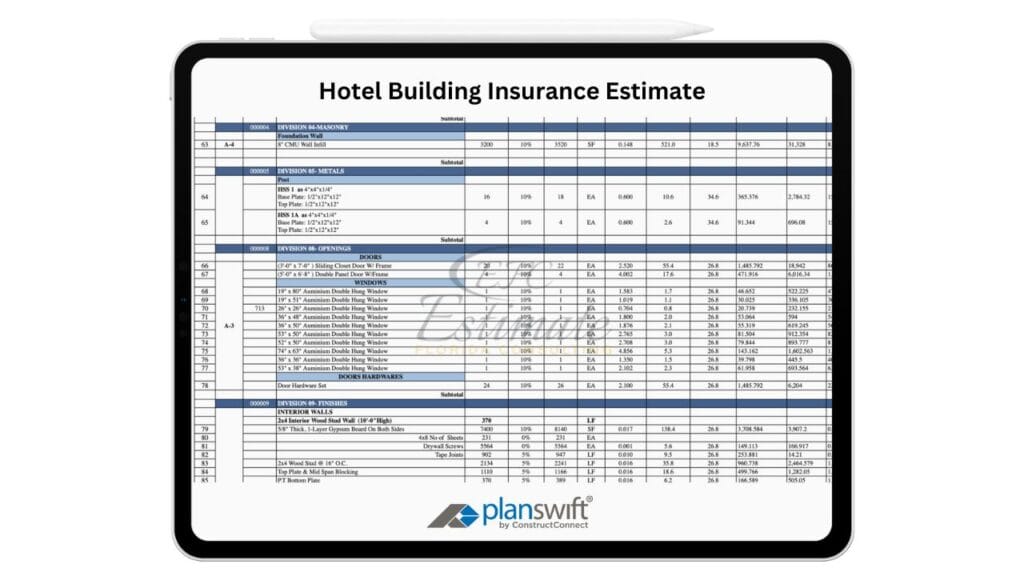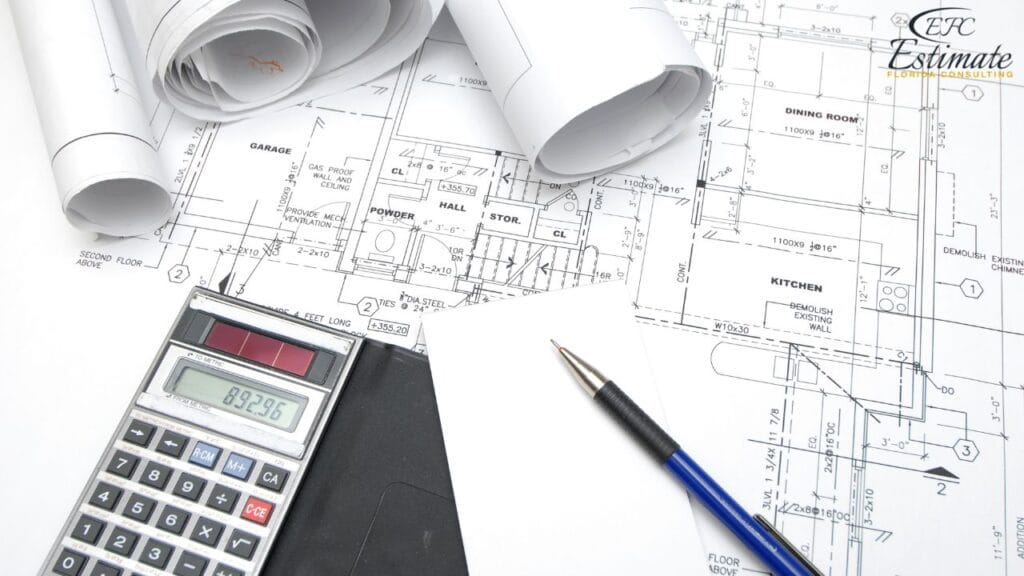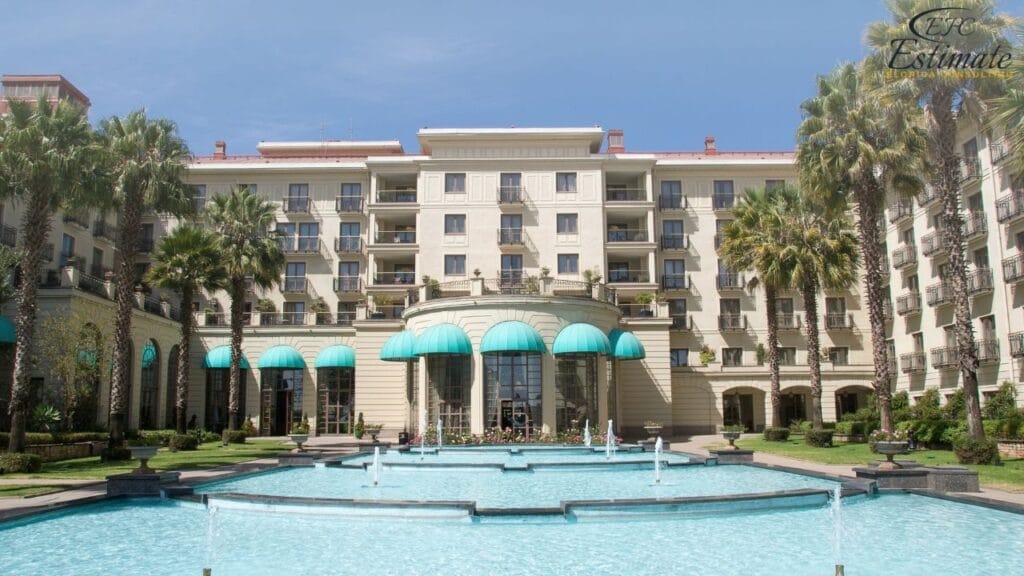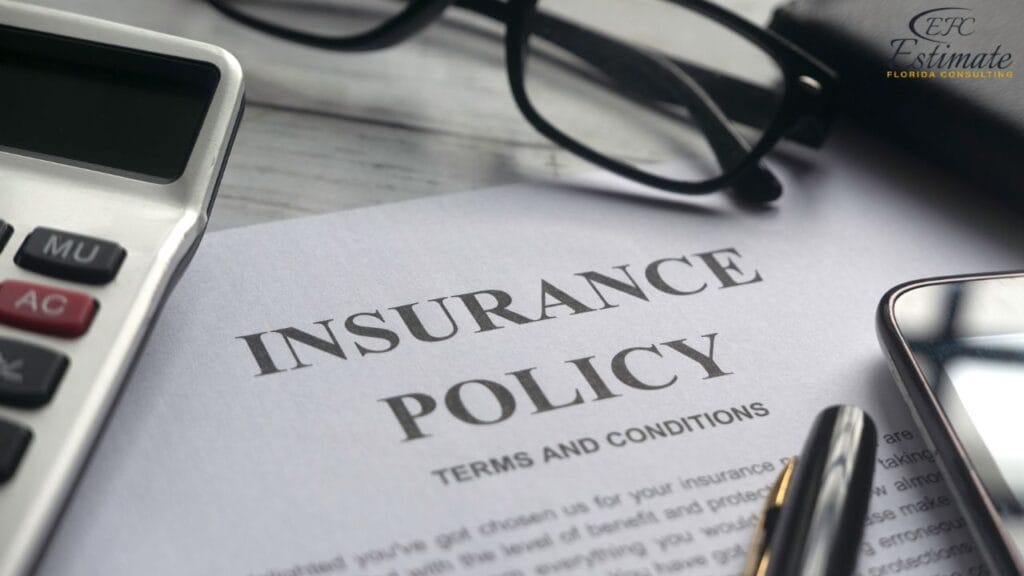90% More Chances to Win Projects With Our Estimate!
- Multi-Family Building
- Hotel Building
- Hospital Building
- Warehouse Building
- School & University Building
- High-Rise Building
- Shopping Complex
- Data Center Building

When considering the construction of a hotel in Florida, one of the critical factors is the cost associated with not just the building itself, but also the insurance that protects your investment. Insurance for hotels encompasses various elements, including property insurance, liability coverage, and specific provisions for natural disasters, which are especially pertinent in hurricane-prone regions like Florida. This blog serves as a comprehensive guide for general contractors, developers, and investors, offering insights into estimating hotel building costs, factoring in insurance, and navigating the complexities of insurance requirements for hotel projects.

In Florida, the average construction costs for hotels have risen significantly due to various factors, including inflation, material shortages, and increased labor costs. As of 2024, the estimated costs to build a hotel range from $200 to $500 per square foot, depending on the hotel type, size, and location. Where the costs typically ranged from $150 to $385 per square foot.
Hotel Type | Average Cost Per Square Foot (2023) | Average Cost Per Square Foot (2024) |
Budget Hotel | $150 – $200 | $195 – $260 |
Mid-Range Hotel | $200 – $300 | $260 – $390 |
Luxury Hotel | $300 – $500 | $390 – $650 |
For budget hotels, the average construction cost per square foot in 2023 ranged from $150 to $200. These hotels are typically designed to provide essential services at an affordable price, attracting cost-conscious travelers. Looking ahead to 2024, the average cost per square foot is expected to increase to $195 to $260. This rise reflects the growing demand for budget accommodations that offer quality and convenience, even at lower price points.
Mid-range hotels cater to travelers seeking a balance between affordability and comfort. In 2023, the average cost per square foot for these establishments was $200 to $300. For 2024, this cost is projected to rise to $260 to $390 per square foot. This increase may be influenced by enhancements in guest amenities, modern design features, and a greater emphasis on sustainability.
Luxury hotels, known for their high-end services and opulent amenities, had an average cost per square foot ranging from $300 to $500 in 2023. As we move into 2024, the average cost is expected to escalate significantly to $390 to $650 per square foot. This substantial increase reflects not only the higher quality of materials and construction methods but also the demand for unique guest experiences that luxury accommodations strive to provide.
These costs can fluctuate based on specific design features and materials chosen for the construction project. Understanding these variations allows developers to budget more effectively and anticipate potential financial implications of insurance coverage.
Luxury hotels, known for their high-end services and opulent amenities, had an average cost per square foot ranging from $300 to $500 in 2023. As we move into 2024, the average cost is expected to escalate significantly to $390 to $650 per square foot. This substantial increase reflects not only the higher quality of materials and construction methods but also the demand for unique guest experiences that luxury accommodations strive to provide.
These costs can fluctuate based on specific design features and materials chosen for the construction project. Understanding these variations allows developers to budget more effectively and anticipate potential financial implications of insurance coverage.
Hotel construction costs can vary dramatically across different regions of Florida. High-demand areas like Miami and Orlando typically see elevated costs due to increased demand, land prices, and regulatory requirements.
In urban centers, average construction costs can reach $500 per square foot due to the high demand for hotel accommodations and the associated costs of land and labor. Conversely, in rural or less populated areas, construction costs might be significantly lower, ranging between $200 and $300 per square foot. These disparities can create opportunities for developers in emerging markets while presenting challenges in highly competitive urban environments.
Land acquisition costs also vary widely depending on the location. In prime tourist areas, land prices can skyrocket, sometimes reaching millions of dollars for a small parcel. Conversely, in less desirable locations, land can be more affordable, allowing developers to allocate more funds toward construction and amenities.
Regions with well-developed infrastructure and accessibility, such as proximity to airports and major highways, typically have higher construction costs due to demand. Conversely, less accessible areas may offer lower land and construction costs but can pose challenges in attracting guests, ultimately affecting the hotel’s revenue potential.
Several factors influence the overall cost of hotel construction in Florida, which subsequently affects insurance costs. These factors include location, design, construction materials, and labor.
The location of the hotel plays a significant role in determining construction costs. Land prices in popular tourist destinations such as Miami or Orlando are considerably higher than in less populated areas. This increase in land costs directly impacts overall investment and insurance premiums, as properties in high-demand areas typically incur higher insurance rates.
In 2023, average land costs in prime locations ranged from $300,000 to $1 million for a one-acre lot. These costs now range from $390,000 to $1.3 million. Higher land costs also correlate with elevated insurance premiums due to the perceived risks associated with high-value properties.

Understanding the local market dynamics can aid developers in making informed decisions regarding location and its implications on insurance and construction costs.
The architectural design of the hotel significantly influences construction costs. Unique and luxurious designs often entail more expensive materials and construction methods, which can escalate the overall project costs. Developers should consider hiring experienced architects and designers who specialize in hospitality projects to ensure the hotel meets both aesthetic and functional requirements.
For instance, a standard hotel construction project could cost around $150 to $300 per square foot in 2023. This cost has now increased to $195 to $390 per square foot in 2024, particularly for high-end or boutique hotels featuring sophisticated designs. These design costs ultimately feed into the hotel’s insurance premiums as they reflect the property’s overall value and complexity. Additionally, hotels that incorporate eco-friendly designs and sustainable materials may benefit from potential insurance discounts, making it a worthwhile investment.
The choice of construction materials and labor significantly impacts both the building costs and insurance rates. Quality materials may cost more upfront but can result in lower long-term insurance costs due to enhanced durability and safety features. For example, fire-resistant materials can help lower property insurance premiums.
Labor costs also fluctuate based on the local market and the availability of skilled workers. In 2023, the labor cost for hotel construction was estimated at $50 to $100 per hour. With the recent increase, this cost now ranges from $65 to $130 per hour. Overall, labor and materials can account for a substantial portion of the total project cost, which directly correlates with the necessary insurance coverage. Ensuring a skilled labor force and selecting high-quality materials can mitigate risks associated with labor-related accidents and subpar construction.
There are various types of insurance that hotel owners must consider. Understanding these insurance categories is vital for estimating overall insurance costs and ensuring comprehensive coverage.

Property insurance covers physical damages to the hotel property caused by various perils, such as fire, theft, or natural disasters. In Florida, where hurricanes are a significant concern, property insurance typically includes specific provisions for wind and flood coverage. On average, hotel property insurance can cost between $3,000 and $10,000 annually. Hotel owners can expect to pay between $3,900 and $13,000.
Moreover, property insurance premiums can vary based on the hotel’s age, construction materials, and safety features installed. For instance, newer buildings with modern fire suppression systems may qualify for lower premiums, incentivizing developers to invest in such upgrades. Understanding these dynamics can help hotel owners make informed decisions regarding the level of coverage needed and associated costs.
Liability insurance protects against legal claims arising from injuries to guests or third parties on hotel premises. This insurance is essential for protecting hotel owners from potentially costly lawsuits. The average cost of liability insurance for hotels in Florida ranges from $1,500 to $5,000 per year. With the increase, these premiums now range from $1,950 to $6,500 annually.
Additionally, factors such as the hotel’s location, occupancy rate, and amenities offered can influence liability premiums. For example, hotels with pools, gyms, or restaurants may face higher liability risks, resulting in increased insurance costs. Regular risk assessments and safety training for staff can help minimize liability claims and potentially lower insurance premiums.
Business interruption insurance is crucial for hotels to cover lost income during periods of disruption, such as natural disasters or significant repairs. This insurance helps hotels recover financially while they are unable to operate. Premiums for business interruption insurance can vary widely based on the hotel’s revenue and location, typically ranging from $2,000 to $6,000 annually. This cost now falls between $2,600 and $7,800 per year.
Hotel owners should consider the potential revenue loss during an extended shutdown and ensure adequate coverage limits are in place. Additionally, developing a comprehensive business continuity plan can help mitigate losses and streamline the recovery process, making the investment in business interruption insurance more effective.
When planning for hotel construction, estimating insurance costs is as crucial as calculating building expenses. Understanding the types of coverage required and their associated costs can help developers budget more effectively.
General insurance premiums for hotels will vary based on the specific coverage types needed. The total annual insurance cost can range from $6,000 to $20,000, depending on the hotel size, location, and features. This range reflects a significant increase from previous years, where the annual costs were approximately $4,500 to $15,000.
Developers should consult with insurance professionals to obtain comprehensive quotes tailored to their hotel project. A well-defined risk management strategy can also help mitigate costs by addressing potential liabilities proactively.
Given Florida’s susceptibility to hurricanes, flooding, and other natural disasters, obtaining comprehensive natural disaster coverage is essential for hotel owners. This coverage can substantially affect the overall insurance budget.
Hurricane insurance is a key component of a hotel’s insurance portfolio. Premiums for hurricane coverage can range from $1,500 to $7,000 annually, depending on factors such as the hotel’s location and construction materials.
In hurricane-prone areas, insurers may require hotels to implement specific safety features, such as impact-resistant windows and wind-resistant roofing.

In addition to hurricane coverage, flood insurance is often necessary, particularly for hotels located near coastal areas or rivers. The National Flood Insurance Program (NFIP) provides coverage options for property owners, with costs varying based on the property’s elevation and risk level. Understanding these requirements and factoring them into the budget is vital for effective risk manageme
While insurance is a necessary expense, several strategies can help hotel owners minimize their costs. By implementing effective risk management practices and ensuring compliance with safety standards, hotel owners can often negotiate lower premiums.
Implementing safety measures such as fire suppression systems, smoke alarms, and security protocols can significantly reduce the risk of incidents. By demonstrating a commitment to safety, hotel owners can potentially qualify for discounts on their insurance premiums.
Conducting regular maintenance on hotel properties helps minimize potential hazards, reducing the likelihood of claims. Establishing a proactive maintenance schedule ensures that any issues are addressed before they escalate, positively impacting insurance costs over time.
Many insurance providers offer discounts for bundling multiple policies, such as property, liability, and business interruption insurance. This approach can lead to significant savings while ensuring comprehensive coverage for the hotel.
Regular risk assessments can identify areas of vulnerability and allow hotel owners to take corrective actions proactively. By addressing potential issues before they lead to claims, hotel owners can foster a safer environment and potentially lower insurance costs.
Financing a hotel construction project in Florida involves various considerations, particularly concerning insurance. Several financing options are available to developers, each with its own advantages and challenges.
Traditional banks may provide financing options for hotel construction, often requiring detailed business plans and insurance coverage assessments. These loans typically come with strict lending criteria, so having a solid financial foundation and well-defined project plans is essential.
The Small Business Administration (SBA) offers loans specifically designed for small business owners, including hotel developers. These loans can cover both construction and insurance needs, providing favorable terms that can benefit developers looking to minimize initial expenses.
Attracting private investors may provide the necessary funding for construction while ensuring adequate insurance coverage. Establishing relationships with investors who have experience in the hospitality industry can be advantageous in securing financing and gaining valuable insights.
Insurance premium financing allows hotel owners to finance their insurance premiums, spreading the costs over the policy term. This approach can be particularly beneficial for managing cash flow during construction, ensuring that developers can focus on completing the project without straining their finances.
Understanding how to navigate insurance claims after a loss is crucial for hotel owners. Proper documentation and clear communication with insurance providers are essential for ensuring a smooth claims process.

Maintaining thorough records of all hotel operations, maintenance, and repairs is invaluable during the claims process. This documentation serves as critical evidence that can substantiate claims and support the hotel’s position during negotiations with insurers.
It is vital to notify your insurance provider of any incidents as soon as they occur. Prompt reporting can expedite the claims process and prevent potential delays in receiving compensation for losses. Timely communication demonstrates professionalism and can foster a cooperative relationship with your insurance provider.
Familiarizing yourself with the specifics of your insurance policy can help you navigate the claims process effectively. Knowing what is covered, what documentation is required, and the timelines involved is crucial for maximizing your benefits.
Building a hotel in Florida requires meticulous planning and budgeting to account for various costs, including construction, insurance, and financing. By understanding the factors influencing construction costs, developing effective insurance strategies, and exploring financing options, hotel developers can position themselves for success in this competitive market.
Hotel construction costs in Florida are influenced by several factors, including location, design, construction materials, labor, and insurance. High-demand areas like Miami and Orlando typically see elevated costs due to land prices and regulatory requirements. Unique architectural designs and high-quality materials can also escalate costs, as can the choice of skilled labor.
As of 2024, the average construction costs for hotels in Florida range from $200 to $500 per square foot. This represents a significant increase from previous years, reflecting inflation, material shortages, and increased labor costs.
The total annual insurance cost for hotels in Florida typically ranges from $6,000 to $20,000. This cost can fluctuate based on factors such as the hotel's size, location, and features. Property insurance alone can cost between $3,900 and $13,000 annually.
Hotel owners should consider several types of insurance, including:
Hotel owners can reduce their insurance costs by investing in safety features, conducting regular maintenance, bundling insurance policies, and performing risk assessments. Implementing fire suppression systems and other safety measures can also lead to discounts on premiums.
Financing options for hotel construction include:
When filing an insurance claim, it's crucial to document everything related to hotel operations, maintenance, and any incidents. Report incidents to your insurance provider promptly and familiarize yourself with your policy's specifics to navigate the claims process effectively.
Hotel construction costs can vary significantly across different regions in Florida. Urban areas like Miami and Orlando typically have higher costs due to demand and land prices, while rural areas may offer more affordable construction options. Understanding these regional differences can help developers identify opportunities and challenges.
At Estimate Florida Consulting, we offer detailed cost estimates across all major trades, ensuring no part of your project is overlooked. From the foundation to the finishing touches, our trade-specific estimates provide you with a complete and accurate breakdown of costs for any type of construction project.

We take pride in delivering accurate, timely, and reliable estimates that help contractors and builders win more projects. Our clients consistently praise our attention to detail, fast turnaround times, and the positive impact our estimates have on their businesses.
Estimate Florida Consulting has helped us win more bids with their fast and accurate estimates. We trust them for every project!

Submit your project plans, blueprints, or relevant documents through our online form or via email.
We’ll review your project details and send you a quote based on your scope and requirements.
Confirm the details and finalize any adjustments to ensure the estimate meets your project needs.
Receive your detailed, trade-specific estimate within 1-2 business days, ready for your project execution.

561-530-2845
info@estimatorflorida.com
Address
5245 Wiles Rd Apt 3-102 St. Pete Beach, FL 33073 United States
561-530-2845
info@estimatorflorida.com
Address
5245 Wiles Rd Apt 3-102 St. Pete Beach, FL 33073 United States
All copyright © Reserved | Designed By V Marketing Media | Disclaimer